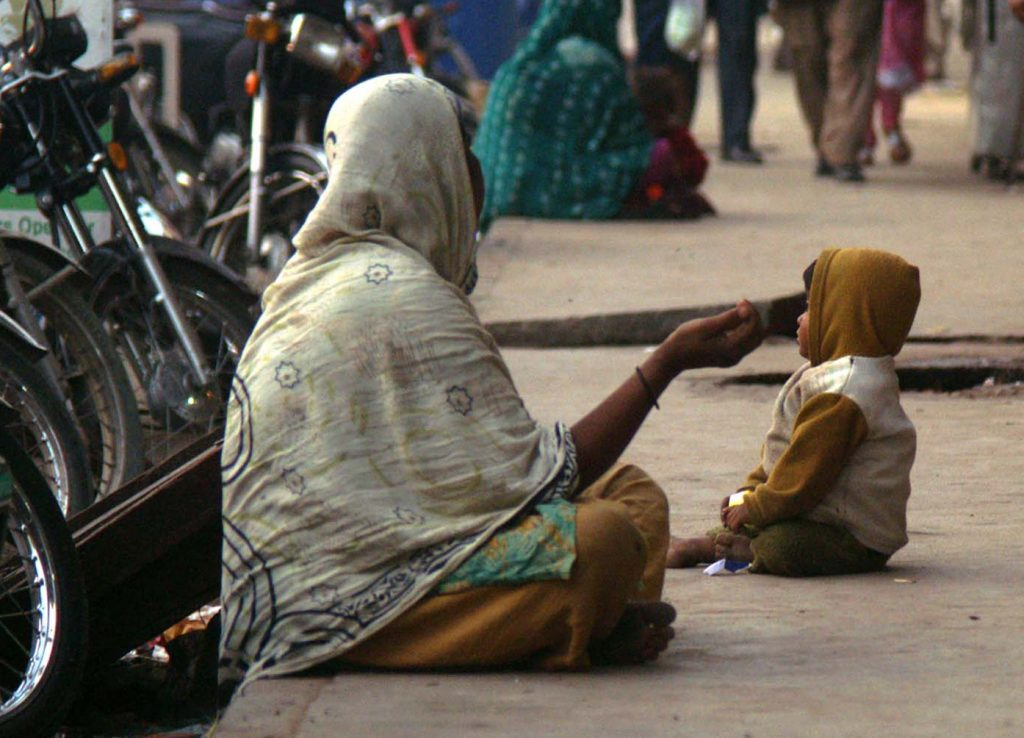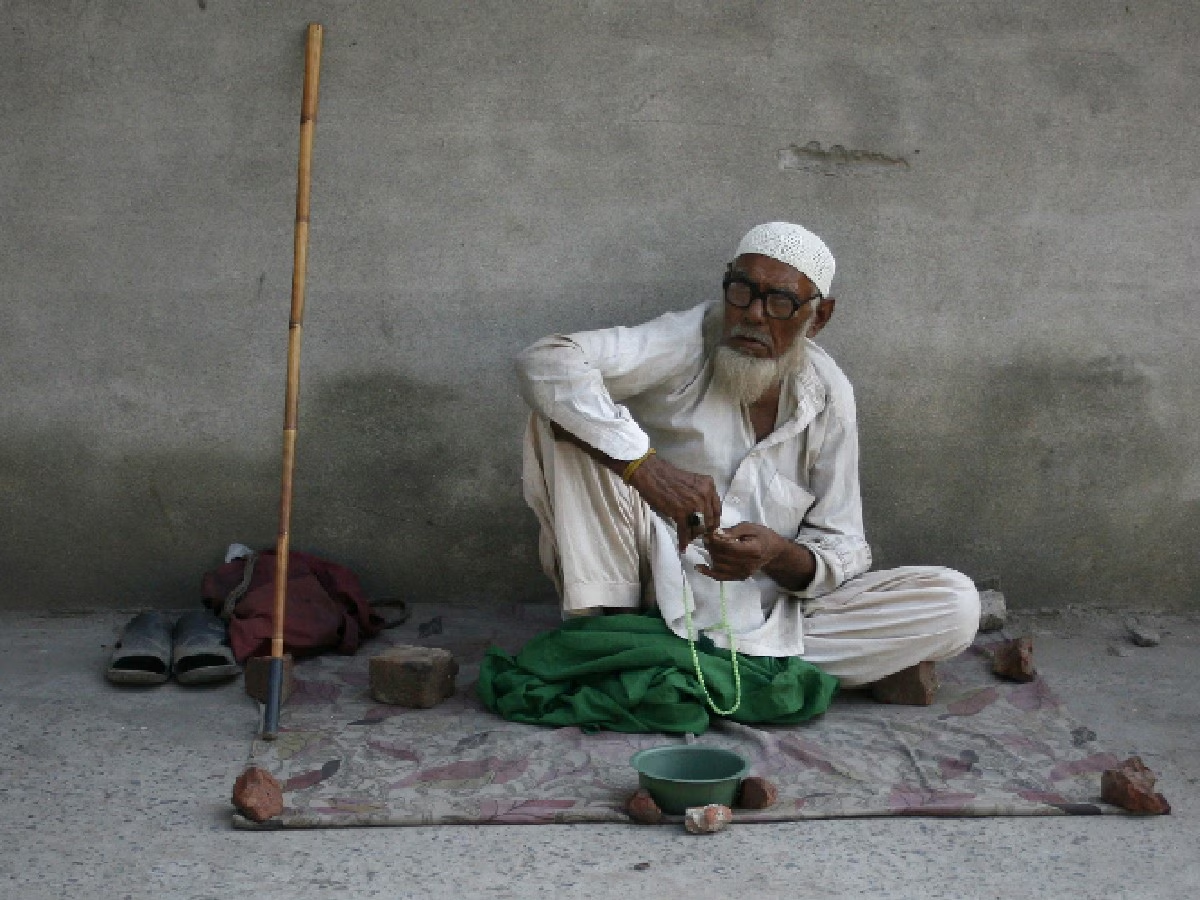Pakistan, grappling with economic instability and social challenges, has been forced to take a hard stance on an issue that has reached international proportions: the export of beggars. The government recently placed 4,300 individuals on its Exit Control List (ECL), effectively barring them from leaving the country.
This drastic step follows warnings from Middle Eastern countries, including Saudi Arabia, regarding the misuse of pilgrimage visas for begging. The move signifies a growing recognition of the issue’s impact on Pakistan’s global reputation and its citizens’ ability to travel freely for legitimate purposes.
The Scourge of Begging: From Pakistan to Saudi Arabia
Country’s reputation for “exporting beggars” has become a point of contention in its diplomatic relations with several West Asian countries, particularly Saudi Arabia.
This issue, compounded by severe inflation and worsening economic conditions in country, has resulted in many people traveling abroad under false pretenses. Using Umrah and Hajj pilgrimage visas, individuals have resorted to begging in holy cities like Mecca and Medina, creating a nuisance for locals and genuine pilgrims alike.
The scale of the problem came into sharp focus when Saudi Arabian authorities reported that up to 90% of pickpockets arrested in Mecca’s Grand Mosque were of Pakistani origin.
This revelation, combined with a surge in complaints about Pakistani beggars crowding streets in cities like Jeddah, Mecca, and Medina, led Saudi officials to raise alarms.
Read : Sara Sharif’s Grandfather Says He Will Fight to Keep Her Siblings in Pakistan
Under Saudi law, begging is a criminal offense punishable by imprisonment and hefty fines, and many Pakistani beggars have found themselves incarcerated as a result. The situation escalated to the point where Saudi Arabia threatened to impose stricter measures on visa applicants if Islamabad failed to address the issue.
These warnings served as a wake-up call for country, which subsequently took action by placing thousands of beggars on the no-fly list.
The Impact of No-Fly List on Its Beggar Problem
The decision to place 4,300 beggars on the ECL reflects Pakistan’s effort to curb the growing menace of organized begging networks, or “beggar mafias,” that exploit vulnerable individuals.
Interior Minister Mohsin Raza Naqvi announced this measure after discussions with Saudi Deputy Interior Minister Nasser Bin Abdulaziz Al Dawood, emphasizing country’s zero-tolerance policy toward such practices.
In addition to barring known beggars from traveling abroad, country has vowed to launch a nationwide crackdown on these mafias.
These criminal networks have been accused of orchestrating large-scale begging operations, exploiting Pakistan’s poorest citizens by sending them overseas under the guise of religious pilgrimages.

Once in countries like Saudi Arabia, the individuals are forced to beg, tarnishing country’s image and creating diplomatic tensions. The crackdown has already yielded some results. In September 2023, Pakistani authorities offloaded 16 individuals disguised as pilgrims from a Saudi-bound flight in Karachi.
These individuals, later arrested, were part of an organized scheme to travel to Jeddah for begging purposes. Such interventions demonstrate the government’s intent to address the problem, although much work remains to be done.
Broader Implications of Pakistan’s Beggar Problem
The issue of Pakistani beggars in Middle Eastern countries is more than a matter of embarrassment for Islamabad—it has far-reaching consequences for its citizens and economy.
With nearly 10 million Pakistanis living abroad, remittances from the diaspora form a critical part of country’s financial stability. However, the actions of a few have placed genuine travelers and workers under increased scrutiny.

Saudi Arabia’s warnings of stricter visa policies have already resulted in difficulties for Pakistanis seeking Hajj and Umrah visas. Genuine pilgrims now face longer processing times and additional background checks due to the actions of a minority. This has strained relations between the two countries and undermined Pakistan’s standing as a reliable partner in the region.
Additionally, the economic conditions driving individuals to beg abroad highlight the systemic challenges within country. Inflation, unemployment, and poverty have pushed many citizens to seek desperate solutions, including engaging in illegal activities overseas.
Addressing the root causes of these issues will be essential for preventing the recurrence of such problems and restoring Pakistan’s reputation internationally.

To achieve this, Pakistan will need to implement comprehensive measures, including economic reforms, social welfare programs, and stricter enforcement of laws against organized begging. Educating citizens about the consequences of misusing pilgrimage visas and strengthening border controls can also help mitigate the issue.
Pakistan’s decision to place 4,300 beggars on its no-fly list marks a critical step in addressing a problem that has strained its diplomatic relations with Middle Eastern countries.
While this measure demonstrates the government’s commitment to tackling the issue, long-term solutions will require addressing the economic and social conditions that drive individuals to such desperate acts.
The international community, particularly nations affected by this problem, will be closely watching Pakistan’s efforts to see if these actions lead to meaningful change. For now, the no-fly list serves as both a deterrent and a reminder of the urgent need for reforms to prevent similar issues in the future.

